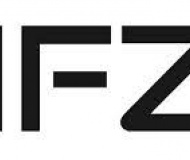Lithuania takes a course on the legal regulation of the crypto-currency market
News:
Date added: 09.10.2018At a seminar on the development of Lithuanian financial sector technologies, representatives of banks and a number of law enforcement agencies decided on the need to adopt regulatory mechanisms for digital assets.
 Recently a seminar was held in Vilnius on the latest changes and innovations covering the financial sector of the republic. Among the present there representatives of the Seimas, the Ministry of Justice, the General Prosecutor’s Office, the State Tax Inspectorate, the Ministry of Agriculture and the Association of Lithuanian Banks should be noted.
Recently a seminar was held in Vilnius on the latest changes and innovations covering the financial sector of the republic. Among the present there representatives of the Seimas, the Ministry of Justice, the General Prosecutor’s Office, the State Tax Inspectorate, the Ministry of Agriculture and the Association of Lithuanian Banks should be noted.
During the speech of key speakers, representatives of the Financial Crime Investigation Service (FNTT) reported on the approval of innovative technologies circulating in Lithuania. In particular, the «circulation» of crypto-currency has a positive effect on the development of the economy, but requires registration in strict accordance with the provisions of the regulatory and controlling mechanisms.
As the director of the FNTT Mr. Anton Mikulskis notes, a huge cash flow, which should be an incentive to develop new business models and ways to raise funds, moves via virtual currency. The lack of regulation of crypto-currency by the National Bank of Lithuania poses a kind of threat to this area of attracting investment.
According to the report of the Deputy Director of the FNTT, Lithuania occupies a leading position among the countries attracting funds through ICO. As an example, through open sources, the figures for Startup Lietuva, which attracted more than 500 million euros, were presented. As it turned out, customers using the services of the above company can not be subjected to any clear identification. There are no guarantees that among these millions there are no illegally obtained financial means.
Representatives of the power ministries confirmed the four largest potential risks: anonymity, cross-border nature of transactions, segmentation of services and decentralized system.
The FNTT has prepared a detailed analysis of the proposed changes that can adapt virtual currency to the requirements of the Anti-Terrorism and Money Laundering Act.
In conclusion, the chairman of the seminar drew an analogy between the need to regulate crypto-currency operations with basketball: clear-cut rules are useful both for players and judges with fans.

















